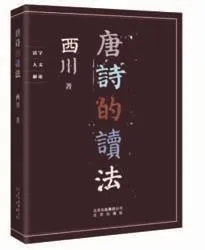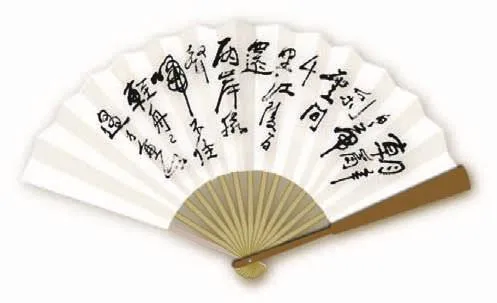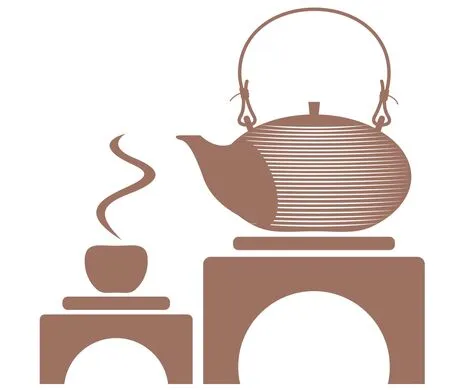和唐诗走得更近
2018-07-02◇文|田东
◇ 文| 田 东

唐诗,这座令后人仰望而着迷的文学山峰,奇峰突起又雄浑高绝,吸引人们不断尝试攀登。
西川,上世纪八十年代起活跃诗坛,是当代最重要的诗人之一。他以新作《唐诗的读法》开启了又一个新鲜的尝试,好比架设一台具有X光功能的望远镜,打开一条带着他体温的思考通道,让耳熟能详的唐代诗人从故纸堆里立起来。
Tang poems are like a fascinating literary pinnacle admired by later generations. It is not only splendid but also magnificent, attracting people to constantly conquer it.
Xichuan, who has been active in the field of poetry since the 1980s, is one of the most influential contemporary poets. He made a new attempt with his new book How to Read Tang Poems as if setting up a telescope with X-ray function, building a path of thinking with his own characteristics and making those famous Tang Dynasty poets more real and vivid.
解锁花式“理论”Introductions to Miscellaneous ‘Theories’
西川有自己的野心,或者说坚持。本书中,他没有罗列多少李杜等人的生活秘闻,而是通过对整个唐诗文化的重新审视和打量,希望从理论上就给我们一个全新的,甚至可以是颠覆式的阅读和理解通道。
比如,他一上来就抛出唐诗缩小阅读论、进士文化论,安史之乱对唐诗的影响论,还有针对杜牧李商隐的“窝囊”论,可以说是传统的唐诗解读中不多见甚至没有过的。
只是,书名虽是要谈“读法”,但理论的言说远远大于细节的陈列,几乎没有对一首具体的诗作进行具体的解读,这对于大多数普通读者来说,不啻为一条坎坷的险路了。西川似乎在用一个诗坛大腕、诗词高手的境界,衡量和要求所有诗歌写作者乃至爱好者。
Xichuan has his own ambition, or persistence. In this book, he did not focus on introducing the secrets of life of Tang Dynasty Poets, including Li Bai and Du Fu.Instead, he re-examined and looked at the entire culture of Tang poems, hoping to theoretically give us a brand-new and even subversive reading and understanding channel.

For example, at the beginning, he started to present theories of Tang poems narrow reading quantity, Jinshi (a successful candidate in the highest imperial examination) culture,the influence of the Rebellion of An Lushan and Shi Siming on Tang poems, and the ‘cowardliness’ of Du Mu and Li Shangyin. This is rare or even absent in the traditional interpretation of Tang poems.
However, although the title of this book is meant to talk about ‘How to Read’, the introduction of theories is far more than descriptions of the details. There is almost no concrete interpretation of a specific poem. This is tough for most average readers. Xichuan seems to evaluate and require all poetry writers and even amateurs with a standard of professional and talent poet.境秘府·南卷》“论文意”篇的话给出了答案——“凡作诗之人,皆自抄古今诗语精妙之处,名为随身卷子,以发兴也。”
什么是随身卷子?同书引名为《九意》的随身卷子来告诉你:《九意》者,“一春意;二夏意;三秋意;四冬意;五山意;六水意;七雪意;八雨意;九风意。”“春意”条下有一百二十句,如“云生似盖,雾起似烟,垂松万岁,卧柏千年,罗云出岫,绮雾张天,红桃绣苑……”“秋意”条下有一百四十句,如“花飞木悴,叶落条空,秋天秋夜,秋月秋蓬,秋池秋雁,秋渚秋鸿,朝云漠漠,夕雨蒙蒙……”
发现了吗?“随身卷子”原来就是唐人写诗的“参考教材”,像极了今时的“XXX写作宝典”。西川将此称之为唐人写诗的技术性秘密,它的普及将唐诗写作从题材到意蕴都类型化,也提高了唐诗写作人群的基本水平。
However, when Xichuan analyzed how we read Tang poetry and how the Tang poets became creative, some interesting details that made it easier for us to understand what he said are revealed.
He wrote that the poems of the Tang Dynasty were very atmospheric, covering almost all the life scenes.Almost all the people of that time can write poetry in any scene: farewells, feasts, excursions, promotions and demotions... Countless Tang poems contain the poets’dreams and ambitions or the sad feelings.
But not everyone is as good at writing poems as Li Bai and Du Fu. It is said that Li Bai can write many poems after drinking a little wine. Du Fu can write a good poem in a very short period of time. How did they write poems?
唐诗创作“秘笈”The Tips of Writing Tang Poems
不过,西川在分析我们如何阅读唐诗以及唐朝诗人如何获得创造力时,道出了一些有滋有味的细节,让我们更容易理解他的言说。
他写到,唐朝诗歌氛围浓厚,几乎所有的生活场景,唐人都会写诗:送别、宴饮、郊游、升贬……无一不诗。大唐疆土上林立的诗墙、诗板布满了大大小小诗人的理想抱负或悲春伤秋。


但不是每一个人都强如李杜,斗酒诗百篇,下笔千言倚马可待,他们怎么写诗?西川援引唐时日本学问僧弘法大师在《文Xichuan gave us an answer by referring to the words of the Japanese master of the Tang dynasty--- Konghai in his article On the Meaning: “Every person who writes poetry draws on the excellence of ancient and modern poems.These merits are all collected in the handbook of writing poems, which is aiming to help poets to write poems.”
The book Nine Images is a typical example of this kind of handbook. Nine Images include the images of spring,summer, autumn, winter, mountain, river, snow, rain and wind. There are one hundred and twenty phrases about the images of the spring, such as thick clouds in the sky,hazy and ethereal fog, evergreen pine trees, thousandyear-old cypress trees, clouds near the top of the mountain, colorful clouds covering all the sky, pale pink peach blossoms and so on. There are one hundred and forty phrases about autumn images, such as withered flowers and trees, fallen leaves, autumn nights, autumn lotuses,autumn ponds and wild geese, cloudless sky in autumn morning, drizzles in autumn evening and so on.”
See? This kind of handbook was an original reference material for Tang people to write poetry, functioning as some Writing handbook of the present. Xichuan called this the technical secret of Tang poetry writing. Its popularity modifies Tang poetry creating from subject matters to implications, and it also raises the basic level of Tang poetry writing.
诗人的朋友圈The Friend Circle of Poets
扒出“写作宝典”,唐诗似乎更多了一份亲和力。西川说:“古人并非高不可攀,我们从当下出发,只要能够进入前人的生死场,就会发现前人的政治生活、历史生活、道德麻烦、文化难题、创造的可能性,与今人的状况其实差不了多少。”
为此,西川又让我们了解了诗人们的交友趣事。比如,诗歌高地的两大主峰李白杜甫,是可以“互怼”的朋友,但他俩却无法进入当时诗坛的主流朋友圈。
当时的诗坛朋友圈,大约王维是“群主”。他信奉佛教,讲究沉郁涵泳,与走道家一路、性格张扬想象奇绝的李白是谈不到一块的。事实上,两人基本没有什么诗词往来,甚至还互相瞧不上。李白的“时人见我恒殊调,闻余大言皆冷笑”是否有明指还真不好说。
再如韩愈和白居易。公元822年的一场春雨之后,韩愈邀张籍、白居易等同游曲江。白居易是个爱玩的人,也没啥要紧事,可他就是没去。韩愈于是写下《同水部张员外籍曲江春游寄白二十二舍人》:
漠漠轻阴晚自开,青天白日映楼台。
曲江水满花千树,有底忙时不肯来?
接到韩愈的诗后白居易回了一首,《酬韩侍郎张博士雨后游曲江见寄》:
小园新种红樱树,闲绕花行便当游。
何必更随鞍马队,冲泥踏雨曲江头。
你看,说得很不客气呢。知道了这些事儿,再读唐诗,想必你会和我一样,别有一番滋味在心头。
The handbooks of poems let Tang poetry no longer seem so mysterious and obscure, as Xichuan said, “The ancients can be surpassed. As long as we set out from the moment to understand the living conditions of the ancients, we will find that the ancients’ political and historical life, moral and cultural problems and the ability of creation are almost the same as that of modern people.”
To this end, Xichuan told us about some anecdotes between poets and their friends. For example, the two leading figures in the field of poetry, Li Bai and Du Fu,were friends who could criticize each other, but both of them did not belong to the mainstream friend circle in the poetry at that time.

Probably, Wang Wei was the one in charge of that friend circle. He believes in Buddhism and pays attention to implicitness and introspection. He is much different from Li Bai, who believes in Taoism and has an untamable personality and rich imagination. In fact, the two basically did not have a clash in terms of poetry. Moreover, they even look down upon on each other. Li Bai once wrote:“Earthlings say that I am always bragging and unrealistic.They all sneer at my lofty ideals and ambitions.” There is a good chance that the earthlings include Wang Wei.
Another example is Han Yu and Bai Juyi. After a spring rain in 822 AD, Han Yu invited Zhang Ji and Bai Juyi to travel along the Qujiang River. Bai Juyi has always been a playful person. He did not have anything to do on that day, but he did not show up. As a result, Han Yu wrote a poem A Poem Written to Bai Juyi.
Clouds and haze dispersed in the evening,
Blue sky with sunshine shining down the gazebo.
Flowers and trees dotted the banks of the Qujiang River,
What have you been so busy with that you never showed up?
After receiving the poetry of Han Yu, Bai Juyi also returned him with a poem named A Poem in Reply to Han Yu.
I just planted some cherry blossom trees in my yard,
Rambling in it and enjoying these flowers were a spring tour for me.
It is not necessary to go out with the crowd and horses;
And to walk on the muddy road in the rain along the Qujiang River.
You see, it is very straightforward. After knowing these interesting things, I guess you would have a different feeling of Tang poems when reading them again just as I did.
